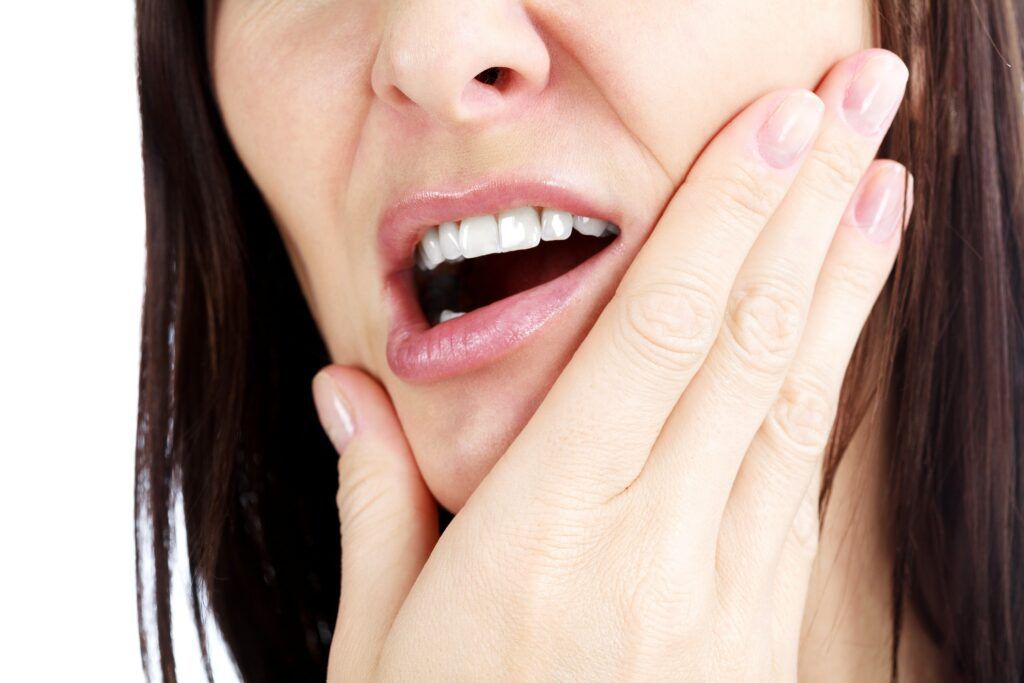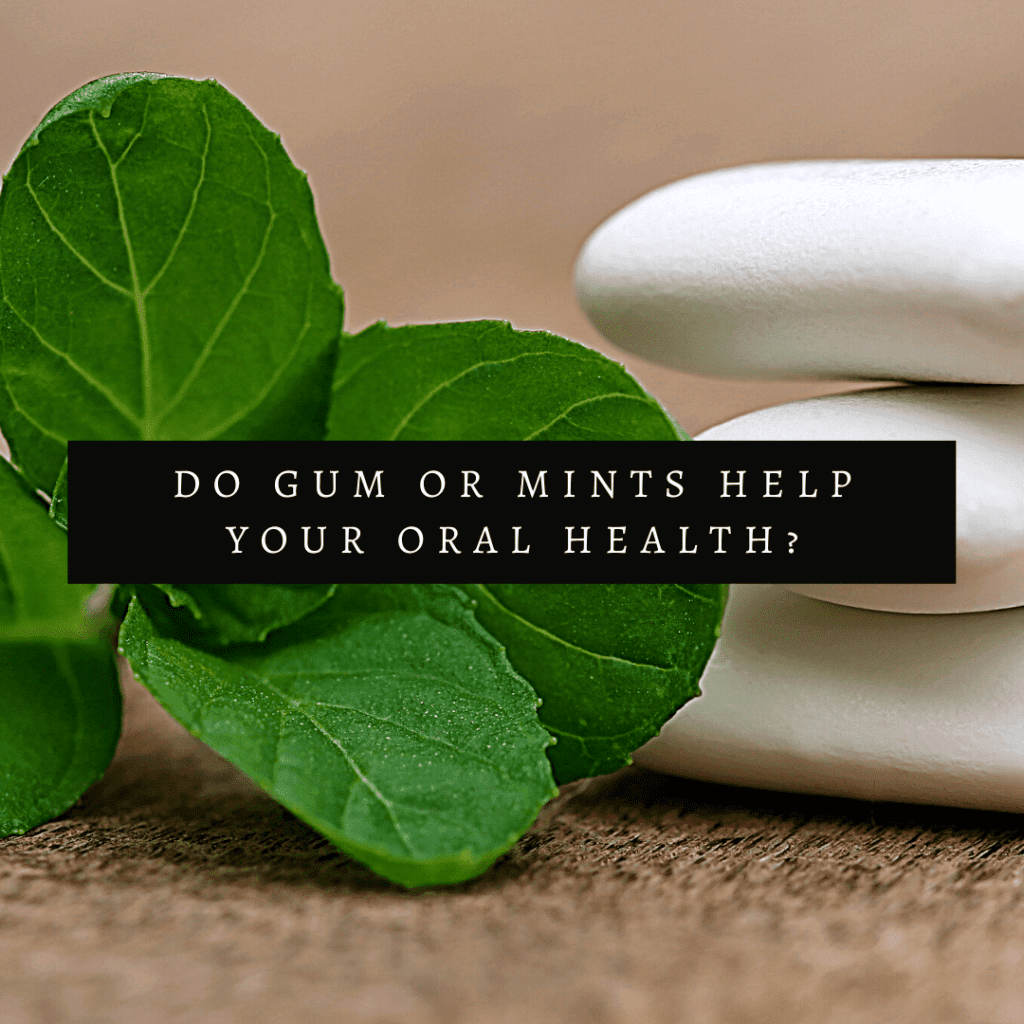If you were to ask someone if a chocolate candy bar was good for their teeth, most people would say “no” without hesitation because it has too much sugar. However, if you asked the same person if gum or mints are good for their teeth, it is very likely that you would be met with some hesitation and possibly an unsure answer. This is because gum and mints are often promoted as being good for one’s oral health, even though they are technically still candy. To answer this question once and for all, let’s take a deeper look at some of the benefits and detriments of gum and mints:
Oral Health Benefits
Increases Saliva Production

Both gum and mints do help to increase the amount of saliva produced. Since saliva neutralizes harmful acids, contains calcium to strengthen enamel, and keeps the mouth clean, increased saliva production is considered beneficial. This is especially true after meals or for people who suffer from chronic dry mouth.
Reduces Tooth Sensitivity
Another great benefit associated with gum and mints is that they have been found to reduce tooth sensitivity. Chewing gum, in particular, has been shown to decrease tooth sensitivity in people who have recently undergone whitening treatments. This is because the excess saliva produced as a result of gum or mints helps to strengthen the enamel to prevent stimuli from entering the tooth.
Protects the Teeth
The American Dental Association notes that chewing sugar-free gum for 20 minutes after eating can actually help to prevent cavities. This is because sugar-free gum increases salivary flow, which helps the mouth to remove sugars from the mouth before bacteria can metabolize them. All sugar-free gum is considered beneficial, however those with xylitol have been found to be especially beneficial. This is because xylitol has been found to inhibit the growth of bacteria and prevent it from adhering to the tooth. Xylitol is also found in sugar-free mints as well.
Oral Health Detriments
Stresses the Jaw Joint

Chewing gum here and there generally does not cause any problems with your jaw, however excessive gum chewing can place additional stress on your jaw joint and the surrounding muscles. Overtime, stressing your jaw joint can lead to temporomandibular joint disorder, which is characterized by facial pain, headaches, and jaw pain. Be sure to speak with your dentist if you experience jaw pain while chewing gum for further advice.
Can Increase Risk of Cavities
Although sugar-free chewing gum and mints can be beneficial for your oral health, gum and mints that contain sugar are detrimental. This is because they generally contain sucrose, which is the primary food source of oral bacteria. This means that when you consume gum or mints with sugar, you are indirectly feeding the bacteria in your mouth. This allows bacterial populations to grow, which increases the risk of tooth decay and gum disease.
Makes the Mouth Acidic
Another detriment of gum or mints with sugar is that they also make the mouth more acidic. This happens for two reasons. First, because bacteria convert the sugar they consume into an acidic waste product that is deposited on the enamel. Second, because citric and other acids are commonly used as flavoring agents. Overall, this decreases the pH in your mouth, making it more acidic. This increases the risk of developing cavities, as well as the risk of enamel erosion.

Dr. Sarmad Channo, a Rochester, MI dentist, received his doctorate degree from New York University Dental School. Since then, he has continued studying to broaden his expertise and has also graduated from Progressive Orthodontic Seminars with the highest of honors. Dr. Channo has also served as an instructor for both the McGann Postgraduate School of Dentistry and Progressive Orthodontic Seminars.

